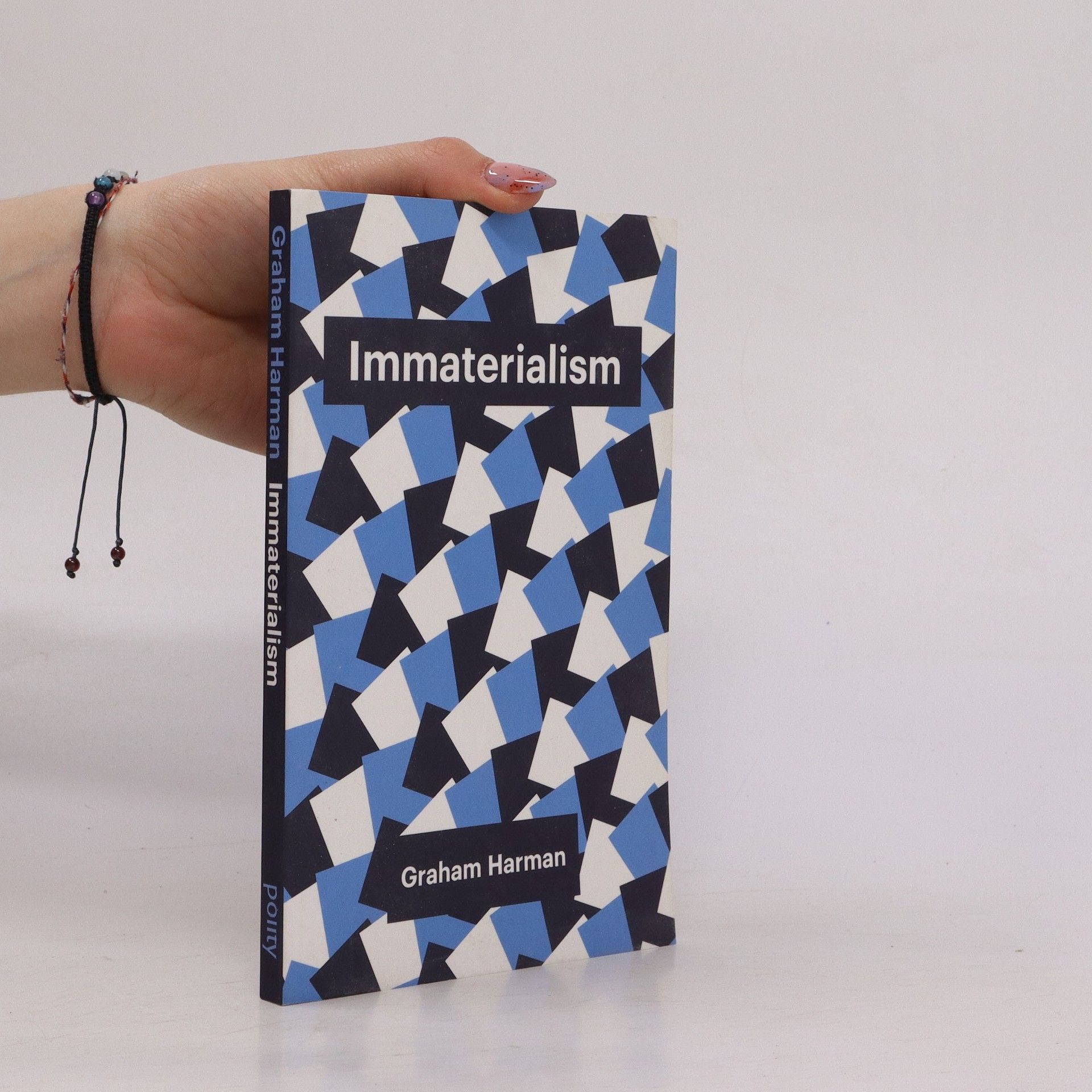The essential compendium of shorter works by one of the most influential philosophers of the twenty-first century. Written in Harman's typical clear and witty style, the Reader is an essential resource for veteran readers of Harman and newcomers alike.
Graham Harman Libros
Graham Harman es un filósofo contemporáneo de la metafísica que intenta revertir el giro lingüístico de la filosofía occidental. Él denomina su enfoque objeto-orientado ontología, centrándose en la realidad de los objetos independientemente de la percepción humana. Su obra explora las intrincadas relaciones entre los objetos y su existencia inherente. Harman es reconocido como una figura destacada dentro del movimiento más amplio del realismo especulativo.







Architecture and Objects
- 208 páginas
- 8 horas de lectura
Thinking through object-oriented ontology and the work of architects like Rem Koolhaas and Zaha Hadid, this book explores new concepts in the relationship between form and function. Object-oriented ontology has gained traction among architectural theorists and practitioners, and this text marks the first exploration of architecture by its founder, Graham Harman. He deepens the dialogue between architecture and philosophy, offering insights into OOO’s impact on contemporary architectural language and practice. Harman begins by critiquing the influential ideas of Heidegger, Derrida, and Deleuze, highlighting their limitations for architecture. He argues that architecture can leverage OOO to rethink traditional views of form and function, which often emphasize their relational aspects—visual style and stated purpose—thus constraining architectural possibilities. By proposing de-relationalized concepts of zero-form and zero-function, Harman challenges Immanuel Kant’s dismissal of architecture as “impure.” Through critical engagement with Peter Eisenman’s writings and fresh assessments of works by Koolhaas, Frank Gehry, and Zaha Hadid, the book presents a bold vision for architecture. Harman posits that overcoming the challenge of “zeroing” function could position architecture at the forefront of revitalizing exhausted aesthetic paradigms.
Quentin Meillassoux
- 304 páginas
- 11 horas de lectura
Offers a comprehensive study of the emerging French philosopher Quentin Meillassoux. This volume covers materials that have not been published at the time of the first edition. It also features several fresh articles by Meillassoux.
Prince of Networks: Bruno Latour and Metaphysics
- 258 páginas
- 10 horas de lectura
Focusing on Bruno Latour's philosophical contributions, this book presents an in-depth analysis of four key works that reveal his unique metaphysical ideas. Graham Harman positions Latour as a pivotal figure in contemporary philosophy, emphasizing concepts like actants and translation. The text critiques the relational emphasis in Latour's Actor-Network Theory while exploring its intersections with Harman's object-oriented philosophy. This engaging dialogue promises to influence modern philosophical discourse, offering fresh perspectives beyond traditional frameworks.
Immaterialism
- 140 páginas
- 5 horas de lectura
In this book the founder of object-oriented philosophy develops his approach in order to shed light on the nature and status of objects in social life. While it is often assumed that an interest in objects amounts to a form of materialism, Harman rejects this view and develops instead an immaterialist method. By examining the work of leading contemporary thinkers such as Bruno Latour and Levi Bryant, he develops a forceful critique of actor-network theory
Object-Oriented Ontology
- 304 páginas
- 11 horas de lectura
What is reality, really? Are humans more special or important than the non-human objects we perceive? How does this change the way we understand the world? We humans tend to believe that things are only real in as much as we perceive them, an idea reinforced by modern philosophy, which privileges us as special, radically different in kind from all other objects. But as Graham Harman, one of the theory's leading exponents, shows, Object-Oriented Ontology rejects the idea of human specialness: the world, he states, is clearly not the world as manifest to humans. At the heart of this philosophy is the idea that objects - whether real, fictional, natural, artificial, human or non-human - are mutually autonomous. In this brilliant new introduction, Graham Harman lays out the history, ideas and impact of Object-Oriented Ontology, taking in everything from art and literature, politics and natural science along the way. Graham Harman is Distinguished Professor of Philosophy at SCI-Arc, Los Angeles. A key figure in the contemporary speculative realism movement in philosophy and for his development of the field of object-oriented ontology, he was named by Art Review magazine as one of the 100 most influential figures in international art.
Tool-being
- 256 páginas
- 9 horas de lectura
Martin Heidegger (1889–1976) influenced the work of such diverse thinkers as Sartre and Derrida. In Tool-Being, Graham Harman departs from the prevailing linguistic approach to analytic and continental philosophy in favor of Heideggerian object-oriented research into the secret contours of objects. Written in a colorful style, it will be of interest to anyone open to new trends in present-day philosophy.
The book explores the philosophical divide between 'waves,' which perceive gradual progress, and 'stones,' which focus on abrupt changes. Graham Harman identifies this dualism as a fundamental paradox in human thought, present across various disciplines such as mathematics and politics. By tracing its historical roots from Aristotle to Bergson, he offers a unified theory that reshapes our understanding of continuity and discontinuity, revealing its impact on our lives and perspectives.
"Objects Untimely" by Graham Harman and Christopher Witmore challenges the notion that time shapes objects, arguing instead that objects are the foundation of reality from which time arises. The authors explore various concepts of time through historical and archaeological lenses, urging a reevaluation of how we perceive objects beyond mere inert matter.
As Holderlin was to Martin Heidegger and Mallarme to Jacques Derrida, so is H.P. Lovecraft to the Speculative Realist philosophers.